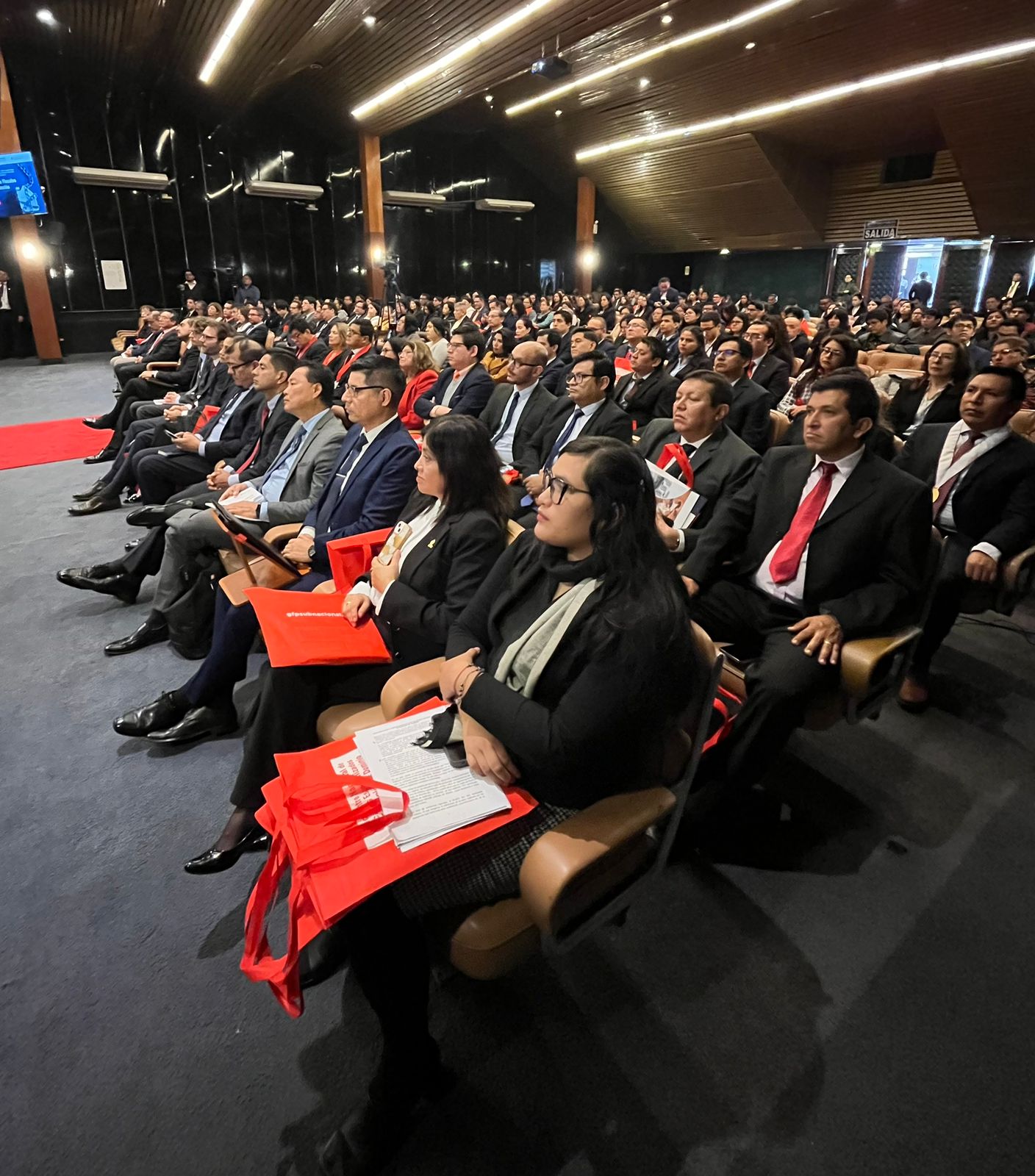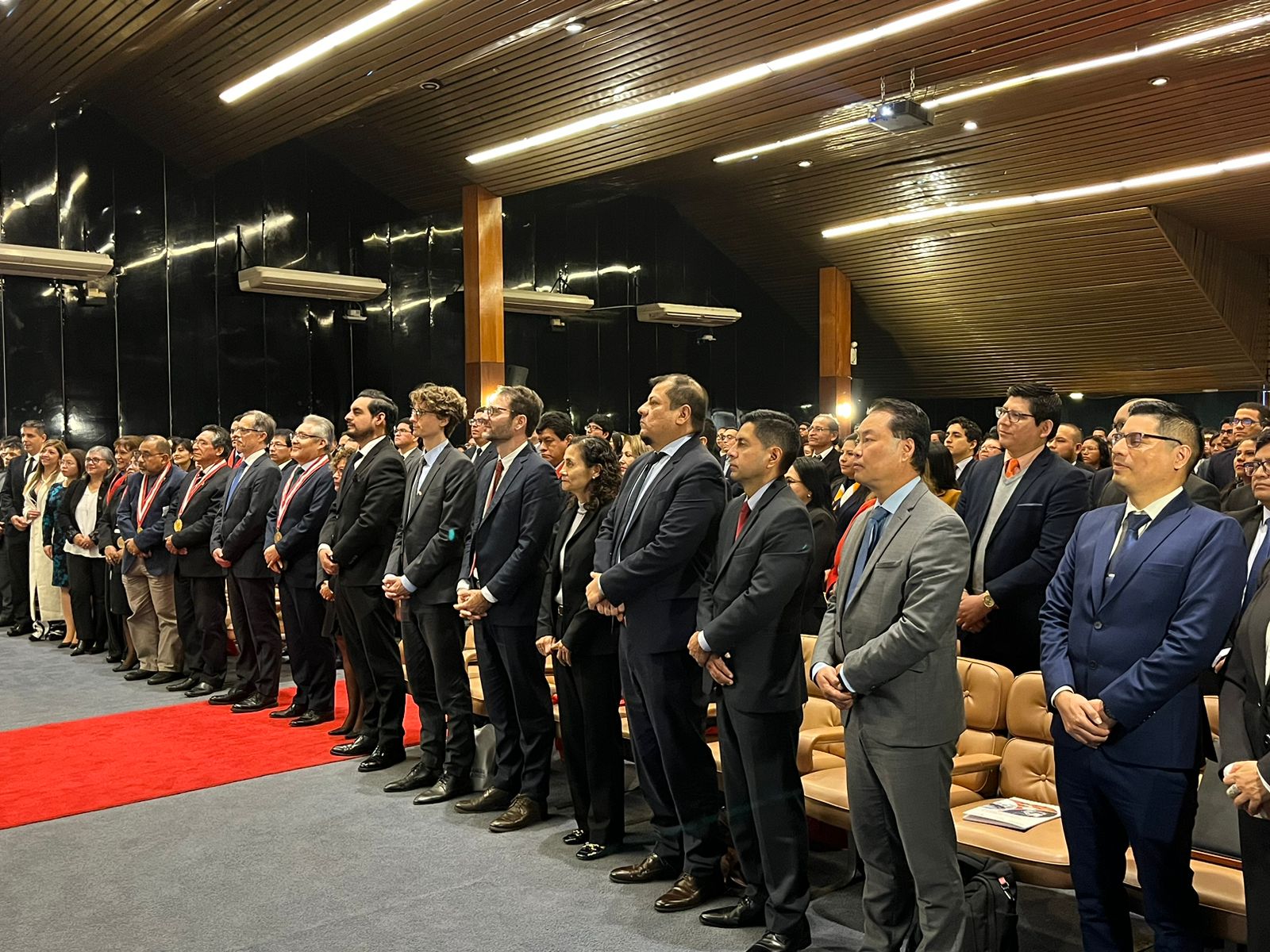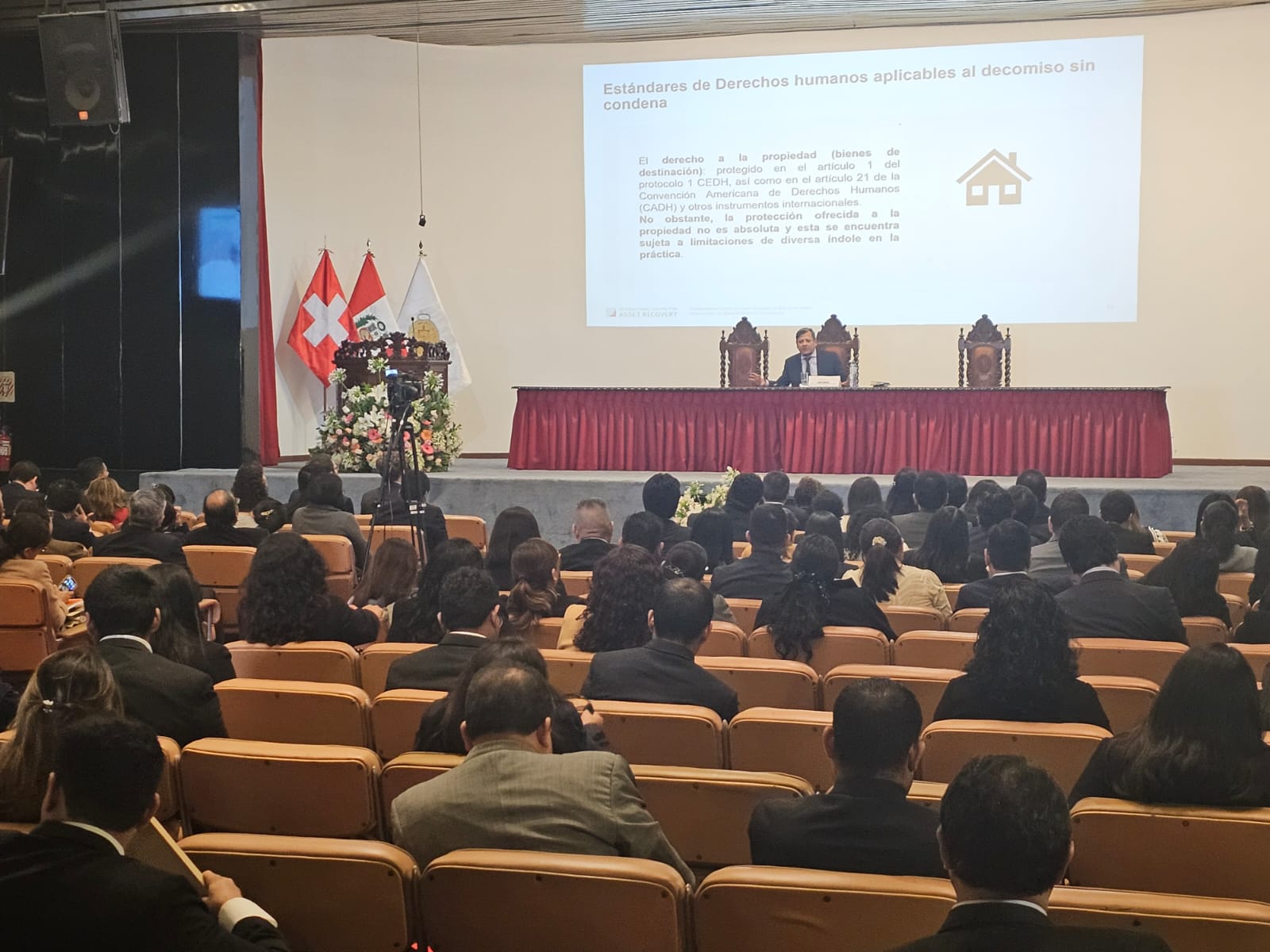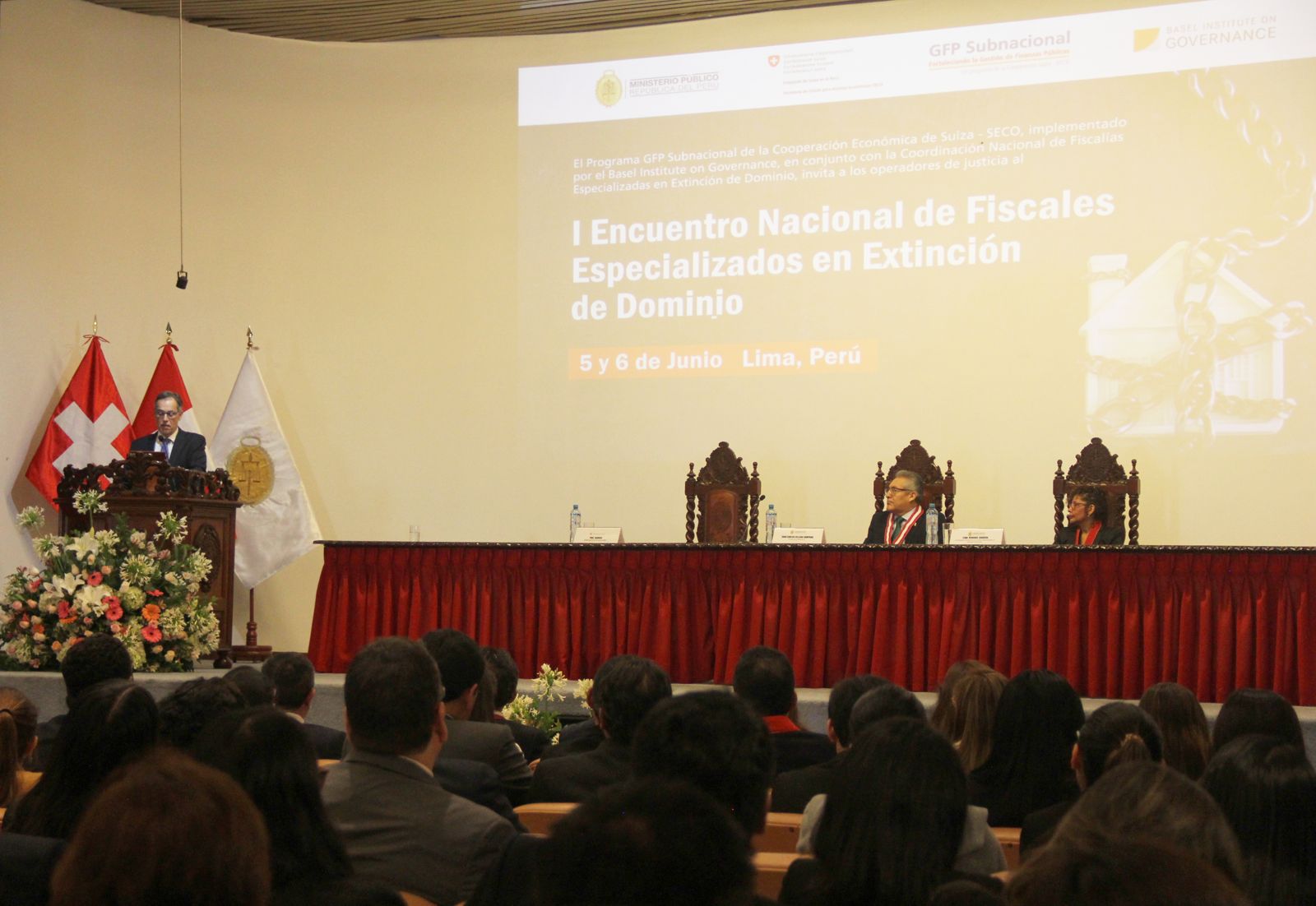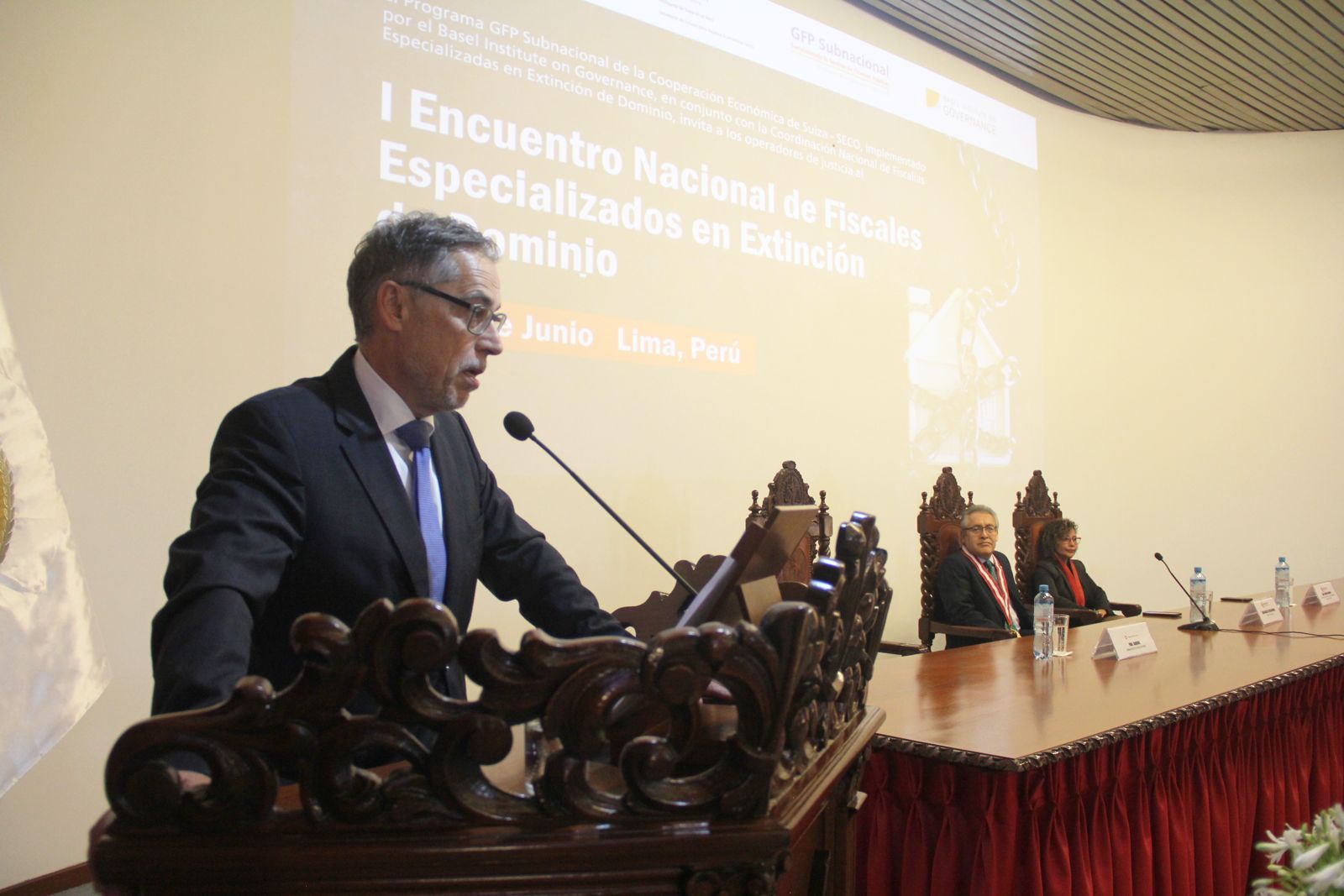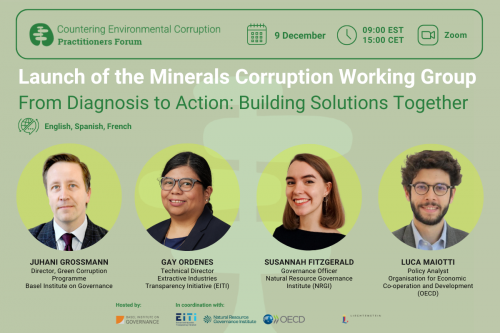Peru celebrates five years of its non-conviction based forfeiture law – USD 94 million so far
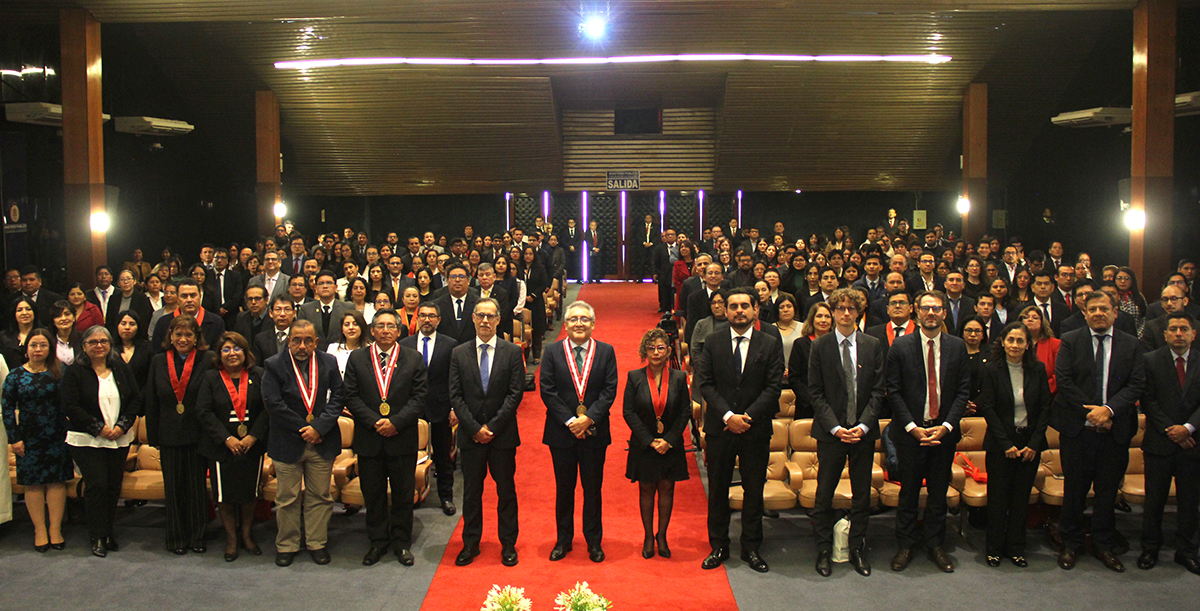
USD 94 million dollars is the amount of money recovered so far by the Peruvian State through its Extinción de Dominio law, according to Attorney General Juan Carlos Villena Campana.
Introduced in 2018, the non-conviction based forfeiture law has been rolled out across the country via a subsystem of specialised prosecutor’s offices, tribunals and courts. The development and implementation of the law was supported by the Basel Institute and its International Centre for Asset Recovery (ICAR), which has worked with the country’s criminal justice authorities since 2013.
The Attorney General lauded the law at a two-day National Meeting of Specialised Prosecutors in Extinción de Dominio on 5-6 June 2024. He also praised the specialised prosecutors who have been using it successfully to recover assets linked to financial and organised crime.
The event was organised with the support of the Embassy of Switzerland in Peru and the Programa GFP Subnacional, a long-running programme to strengthen public finance management that is funded by the Swiss SECO Cooperation in Peru and implemented by our local team.
The following is an adapted translation of the Peruvian Government’s press release.
Asset recovery weakens criminal networks and is vital for development
The Attorney General, Juan Carlos Villena Campana, inaugurated the First National Meeting of the Specialised Prosecutors in Extinción de Dominio that is being held for two days at the headquarters of the Public Prosecutor’s Office, with the support of the Embassy of Switzerland in Peru, Programa GFP Subnacional of the Swiss Cooperation Programme - SECO and Basel Institute on Governance.
In his speech, Villena Campana highlighted the work carried out by the specialised prosecutors of the country’s subsystem for Exintinción de Dominio. Praising their dedication and effort, he explained how they have managed to recover more than USD 94 million dollars in tangible and intangible assets in favour of the State. The assets had been illegally obtained by criminal organisations.
He argued that these specialised prosecutors' offices weaken the capacity of criminal organisations, saying:
“The legal mechanism of Extinción de Dominio, through these prosecutors’ offices, has become a powerful tool for combating the assets of organised crime. The ability to recover these resources is fundamental for promoting development and progress in Peru.”
Scaling up and creating sustainable systems
Villena Campana considered that, taking into account that this is an emerging subsystem, it is necessary to standardise, systematise and document the procedures of these prosecutors' offices in order to facilitate and improve the work of both the prosecutorial and administrative staff.
All of this is aimed at strengthening society's confidence in the Attorney General’s Office and, in general, in the justice system.
He also highlighted other actions, such as the implementation and adaptation of the prosecutorial management system for all specialised prosecutor’s offices. This will systematise the procedural aspects at the national level.
In addition, he mentioned the development of a tech-driven system of expert reports and a draft manual for parallel criminal and financial investigations, the latter led by the specialised prosecutors.
Switzerland: long-running support leads to success
The Swiss Ambassador to Peru, Paul Garnier, said that the ties of collaboration between Peru and Switzerland have a long history. In the area of asset recovery, it is clear that proactive and determined cooperation has borne fruit. He recalled:
"It is with satisfaction that we recall the first recovery processes at the beginning of the century that allowed Peru to recover significant sums of money from Switzerland and other States."
Ambassador Garnier highlighted the joint work of the Swiss Economic Cooperation – SECO and the Basel Institute on Governance as strategic allies. He mentioned the Basel Institute’s contribution, based on its global experience, in preventing and combating corruption and in strengthening governance systems.
The opening ceremony was also attended by Elma Sonia Vergara Cabrera, National Coordinator and Senior Prosecutor of the Specialised Prosecutor's Offices for Extinción de Dominio; prosecutorial and administrative staff of the Public Prosecutor's Office; and Oscar Solórzano, Head of Latin America at the Basel Institute on Governance.
Learn more
- Watch a short video by Peru's Public Prosecutor's Office about the law and subsystem.
- See extracts from speeches by Swiss Ambassador Paul Garnier and Prosecutor Vergara Cabrera.
- Read an interview with a Specialised Prosecutor from Cusco about the use of the non-conviction based forfeiture law to recover assets arising from corruption.
- Find out about the Subnational Public Finance Management Strengthening Programme, which leads the rollout of the specialised subsystem and supported the organisation of the two-day event.
- Learn about the work of the Basel Institute’s International Centre for Asset Recovery, which receives core funding from the Governments of Jersey, Liechtenstein, Norway, Switzerland and the UK.

